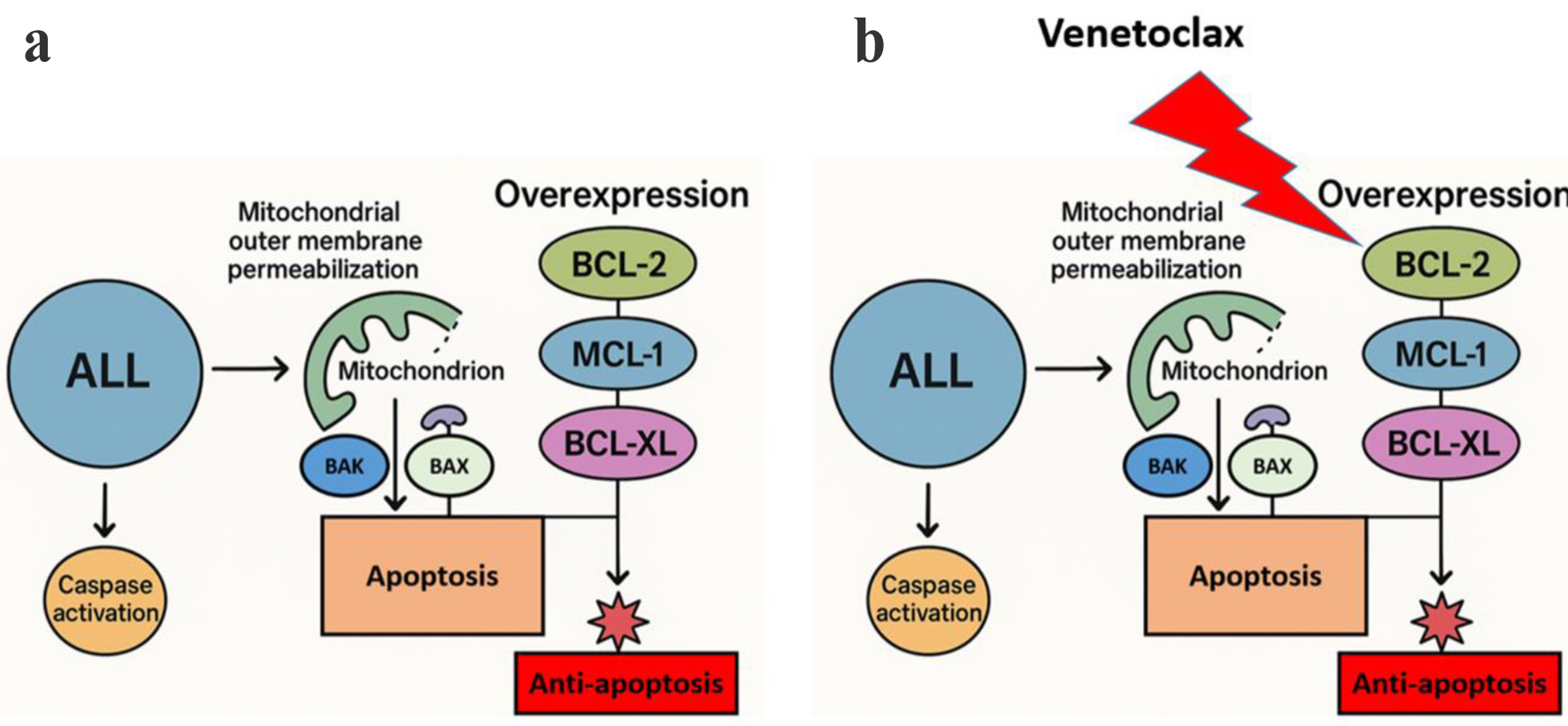B-Cell Lymphoma 2 Inhibition in Acute Lymphoblastic Leukemia: Mechanisms, Resistance, and Emerging Combinations With Venetoclax
DOI:
https://doi.org/10.14740/jh2092Keywords:
Venetoclax, BCL-2 inhibition, Acute lymphoblastic leukemia, T-cell ALL, B-cell ALL, Apoptosis resistance, Combination therapy, Targeted therapyAbstract
Recent studies show that the B-cell lymphoma 2 (BCL-2) inhibitor venetoclax is a promising therapeutic drug for acute lymphoblastic leukemia (ALL), especially in high-risk subtypes including early T-cell precursor (ETP)-ALL, Philadelphia chromosome (Ph)-like B-cell ALL, and KMT2A-rearranged leukemia. The preclinical and early-phase clinical research shows that venetoclax-based combinations can increase apoptosis and improve response rates when used with chemotherapy or hypomethylating agents. The main challenge to venetoclax efficacy remains the resistance mechanisms that primarily involve myeloid cell leukemia-1 (MCL-1) and BCL-extra large (XL). This review provides an overview of the current state of venetoclax in ALL by discussing its mechanistic basis and clinical trial results as well as safety data and strategies to overcome resistance and enhance venetoclax-based treatments.

Published
Issue
Section
License
Copyright (c) 2025 The authors

This work is licensed under a Creative Commons Attribution-NonCommercial 4.0 International License.








